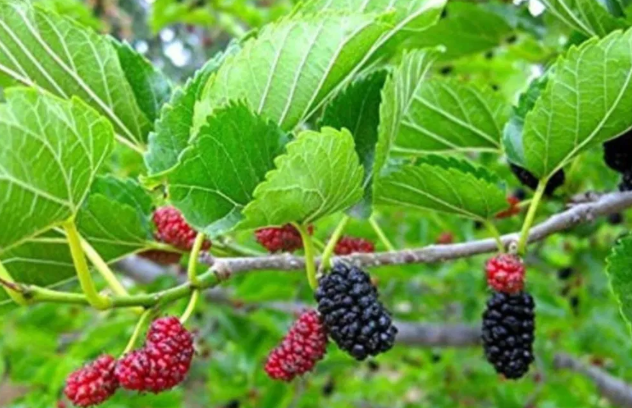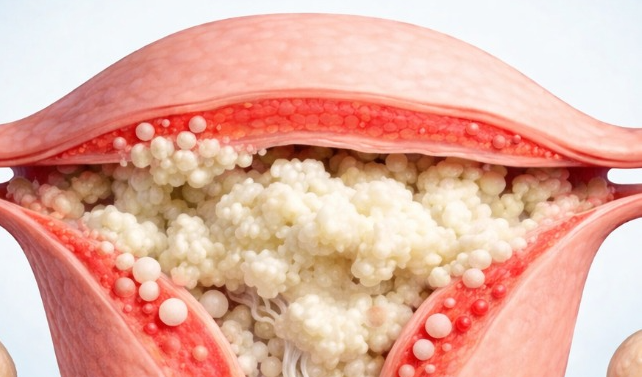A white mulberry tree might appear unremarkable at first glance, yet this unassuming plant possesses extraordinary health advantages.
Investigations have revealed that white mulberry aids in blood sugar regulation, fosters cardiovascular well-being, and could even contribute to cancer prevention.
A Plant with Deep Roots in History
White mulberry was introduced to the U.S. during the colonial era, in an endeavor to establish a domestic silk industry.
While the silk trade did not fully materialize, the tree successfully adapted to diverse climates and is now found across North America and other temperate regions.
Beyond its utility in silk production, the tree’s robust, enduring wood has historically been employed for crafting items such as boats, sports equipment, and furniture. However, the profound value of white mulberry may reside in its leaves and berries, which are abundant in advantageous nutrients and compounds.
Key Health Benefits of White Mulberry
1. Assists in Stabilizing Blood Sugar
Among the most recognized benefits of white mulberry is its capacity to promote healthy blood sugar levels. A compound present in its leaves—1-deoxynojirimycin (DNJ)—helps decelerate the digestion of carbohydrates, which in turn delays the release of glucose into the bloodstream. This leads to fewer blood sugar spikes post-meals, making it particularly beneficial for individuals managing prediabetes or type 2 diabetes.
2. Supports Cardiovascular Wellness
White mulberry contains antioxidants and plant-based compounds that aid in lowering LDL (“bad”) cholesterol and enhancing blood circulation. These advantages contribute to sustaining healthy blood pressure and diminishing the risk of heart disease over time.
3. Exhibits Potential Anti-Cancer Effects
Preliminary studies have indicated that white mulberry contains resveratrol—a potent antioxidant also present in red wine. This compound may help inhibit the growth of specific tumors, though additional research is still required to confirm its cancer-fighting attributes.
4. Enhances Immune Function and Reduces Inflammation
Rich in vitamin C and polyphenols, white mulberry helps the body combat infection and inflammation. Its antioxidant content helps safeguard cells from oxidative stress, which is linked to aging and chronic illness.
5. Alleviates Respiratory Symptoms and Joint Pain
Traditionally, white mulberry tea has been utilized to address cold symptoms like coughing, fever, and sore throat. It has additionally been employed to ease muscle stiffness and joint pain, including symptoms associated with arthritis.
6. Aids Digestion
White mulberry is a natural source of fiber, which facilitates digestion and gut function. Its pectin and organic acids encourage healthy bowel movements and may support superior absorption of nutrients.
7. Supports Skin and Hair Health
In traditional Chinese medicine, white mulberry is believed to assist with issues such as hair loss, dizziness, and ringing in the ears. Due to its antioxidant content, it may also help diminish signs of skin aging and foster scalp health.
Nutritional Highlights
White mulberry leaves and berries encompass a variety of beneficial nutrients, including:
- Vitamin C for immune defense and tissue repair
- Vitamin B to support energy and brain health
- Fiber and pectin for digestive support
- Polyphenols and flavonoids, which function as antioxidants
- Resveratrol with anti-inflammatory and anti-tumor properties
- Carotene and organic acids for metabolism and skin wellness
What Studies Indicate
Research validates the use of white mulberry for decreasing fasting blood sugar and enhancing insulin sensitivity. A study conducted at the University of Texas emphasized the presence of resveratrol in mulberries, connecting it to heart protection and potential cancer-fighting properties. Other studies also corroborate its cholesterol-lowering and anti-inflammatory effects, although the preponderance of research concentrates on its impact on blood sugar.
Safety Considerations
White mulberry is generally considered safe when consumed in moderation. However, individuals taking medication for diabetes should consult with a healthcare provider, as combining both could result in excessively low blood sugar. Pregnant or breastfeeding individuals are advised to avoid high doses, as safety data remains limited.
How to Enjoy White Mulberry
- Tea: Brew dried leaves for a soothing herbal tea that supports blood sugar and calms cold symptoms.
- Capsules or extracts: Optimal for those seeking a more concentrated dose.
- Fresh or dried berries: Incorporate into your breakfast or consume as a snack to receive an antioxidant boost.
Final Thoughts
Although frequently overlooked, white mulberry stands as a potent natural remedy with a rich history and expanding scientific endorsement. Whether you aim to manage blood sugar, enhance immunity, or support heart health, incorporating this plant into your routine may provide significant benefits.






